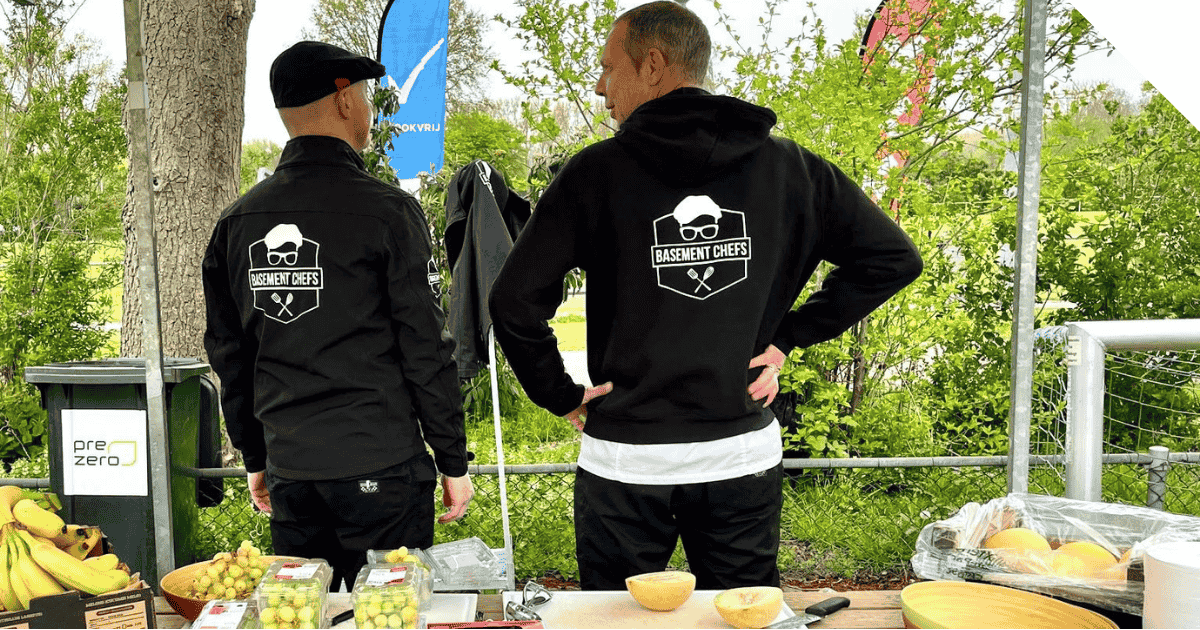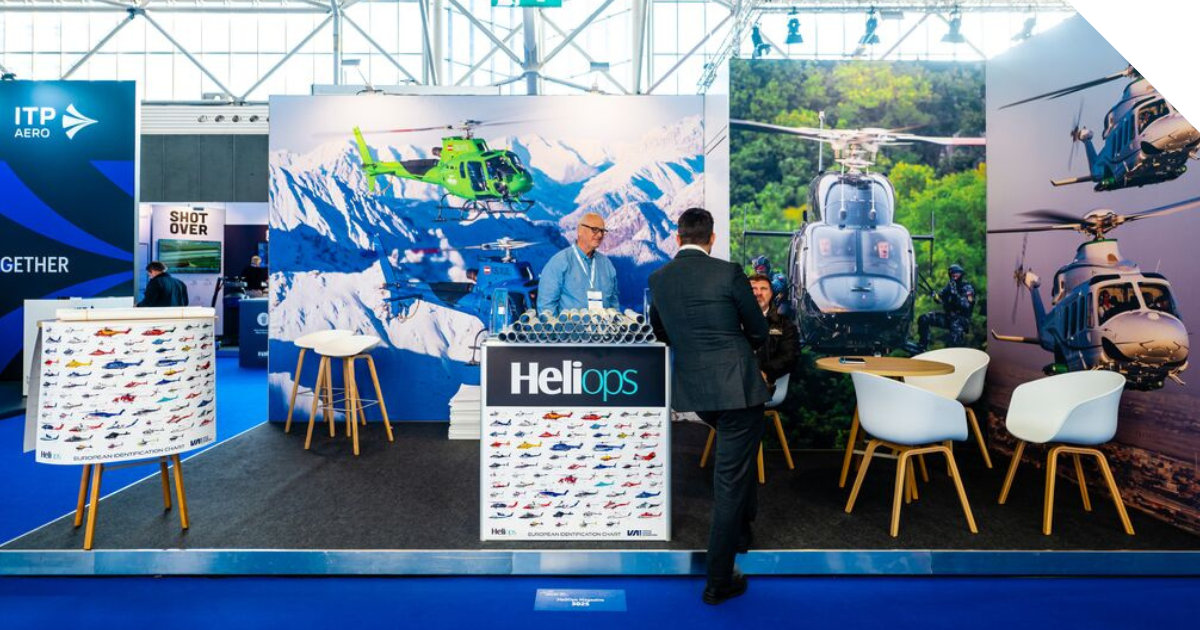From the outside in: What is the social added value of your event?
Event organisers know better than anyone how much context matters. After all, events are about creating an ideal context for valuable meetings to occur. It can be very worthwhile to check how aware you actually are of the context in which your event takes place as it gives your event its current and future raison d'être. Understanding and keeping track of that context can enhance your event’s social value and be an opportunity for you as an organiser to help make the world a better place.
Events respond to a need among a community or group to meet around specific themes, which can be anything from water management and horticulture to drones. The success of your event depends on how well you can respond to the requirements of potential and current exhibitors and visitors. But there are many other needs and parties for which you can also create value. Your event doesn’t take place in a vacuum, but in a context in which you encounter a variety of social needs. The better you respond to them, the greater the social added value provided by your event and people’s appreciation of it. And that’s something we can all get behind!
The key is to want to understand the context of your event and to analyse its different components. Questions you can ask yourself as an organiser include: Who does my event affect? What do they find important and how can we organise things with this in mind? What value does our event have for society at large? Which of the things we do might actually be a net drain on society? Who loses out from them? What can we do to limit or neutralise this loss?
Look at your event in this way and you could find many new ways in which it can be valuable. Wouldn’t it be a shame to leave this potential unused? I for one think it would be a terrible waste.
Reducing/preventing social losses
Which societal groups does your event involve and affect? With whom do you have to deal with directly or indirectly? What developments are affecting them? Do you have an idea of the ways in which your business may have a negative impact on the surrounding society? If not, how can you find out? And once you do, how can you take responsibility?
A venue may be able to provide you with insight into some of the measurable effects of the choices you make when organising your event. Consider, for example, the CO2 emissions created by your energy consumption or the amount of food waste you produce. At the RAI, we can display some of these measurable effects in an event footprint. However, it is especially interesting to learn to understand the ways your event might inconvenience the people it comes into contact with, enabling you to do something about that. This offers you a chance to explore aspects of your event which matter to society and take action that will boost its social added value.
For example, our venue is located in the middle of the city of Amsterdam. Local residents are sometimes inconvenienced by the organisation of an event as this can cause noise and traffic congestion. What can we do together with the organiser to help minimise the problem? Both the venue and the organiser need to be open to the possibilities and work together with the neighbourhood to see how the problems can be limited as much as possible. Ideally, we wouldn’t wait for complaints but would proactively look at what matters to our neighbours in relation to the event.
Increasing social added value
It is a loss for society when any potential value that you could offer through or via your event is left unrealised, especially since there are often plenty of ways to make that happen. At the RAI, I see new opportunities for our business to be of value to the environment every day. You can find some examples in Dutch here, here, here and here.
Are you conscious of the value you hold in your hands? In an earlier post I wrote about the ways in which an event with content can be aware of societal challenges and help develop answers to them. But there is so much more you could do. As an event organiser, you can generate a lot of value. The question is: Who needs it? Or turn the question around: What social needs are there and how can you contribute to meeting them with your event? Finding the answers requires matchmaking, which fortunately is something our industry is good at.
Consider, for example, all the knowledge and expertise present on your exhibition floor. Is it being used to the fullest? Is the content of your exhibition accessible to everyone? Or could it help more people? Whom does your event include and whom does it exclude? Which people might struggle to access it? To what extent are your visitors a representative reflection of the event target group? Who might have trouble gaining access to your event as an exhibitor? To what extent are the exhibitors a representative sample of the parties active in the relevant sector/community?
There are a lot of questions and answers that can lead to valuable initiatives. For example, you can help parties who would like to access an event but find it difficult to participate. To give an example, the RAI’s own exhibitions help various charities whose activities match the sectoral challenges highlighted at an event to attend. This also increases the likelihood that the charities can contribute content related to the sector at the event. You can also, for example, choose to make your event accessible to people with a low income free of charge or at a reduced rate.
You can think further still. What else can you offer? Space, expertise, a network… Here’s an example to illustrate my point: I know of social initiatives in which people are always looking for opportunities to give their volunteers or vulnerable groups a fun outing. Suppose you are the organiser of a theatre performance. You could donate tickets to an initiative, although that could be a considerable expense. Another possibility could be to invite them to the dress rehearsal. You kill two birds with one stone: the volunteers have a fun outing and the actors get a live audience in front of which to practice. And, most importantly, nothing is lost – because the dress rehearsal is also fun to watch.
For each event, there may be groups that are not directly on your radar, but are interested or have a need for something that your event has to offer (perhaps without you realising that). By not looking at things primarily from an economic perspective (‘this is something that will earn me money’) but thinking about all types of value, you see new possibilities arise.
Speaking of value, a lot of the materials used at an exhibition go straight into the trash. While you can, of course, separate all the waste, it would be better to reuse it. But how do you ensure that this material remains valuable rather than becoming waste? Think about the stuff left over after your exhibition and whether there is anyone you could make happy with it. One answer to this issue is the 'donation room' concept, which we are going to use at a large event for the first time this year. At the RAI, we have a list of things that can be useful to social initiatives in the neighbourhood. Exhibitors can donate items left over after their event to ensure they end up somewhere useful.
Use your power responsibly
You should remember that you have the power to generate value and can use it in a range of ways. Look around you and get a feel for what's going on and who might need what you have to offer. If you view your event purely as a closed economic system, you sell it short. Also look at the social value and how you can increase this. What you get from such an approach can be just as important as money: you help other people and contribute to a better world. It also strengthens your business position as you can count on the appreciation of exhibitors, visitors and other stakeholders.
Having your event perceived as responsible by the people around you is both pleasant and strengthens your market position. It ensures that you make the best possible use of the knowledge, contacts and assets at your disposal. And, last but by no means least, it gives an incredible feeling of satisfaction, one which I thoroughly recommend. After all, organisers are first and foremost human beings.

.png?h=628&iar=0&w=1200)

